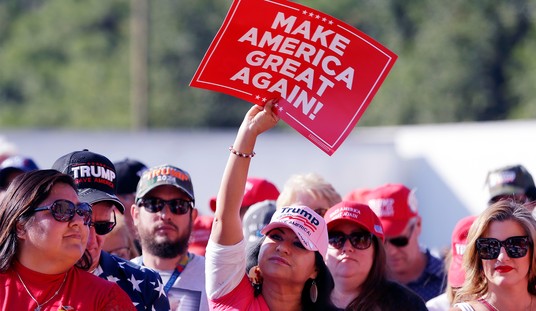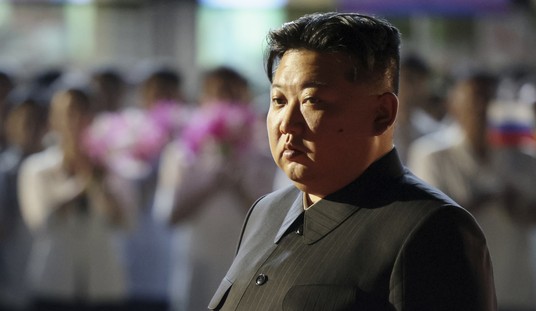In an interview with New York magazine’s Chris Smith, New York City Mayor Bill de Blasio said the biggest obstacle to progress is the idea of private property. He spoke of a “socialistic impulse,” and seemed to favor the idea of turning the Big Apple into Venezuela.
When asked, “Where has it been hardest to make progress? Wages, housing, schools?” de Blasio pivoted to the idea of private property itself.
“What’s been hardest is the way our legal system is structured to favor private property,” the mayor said. He suggested that the common people favor socialism over capitalism and that the government should have complete control over everything.
“I think people all over this city, of every background, would like to have the city government be able to determine which building goes where, how high it will be, who gets to live in it, what the rent will be,” de Blasio declared. “I think there’s a socialistic impulse, which I hear every day, in every kind of community, that they would like things to be planned in accordance with their needs. And I would, too” (emphasis added).
“Unfortunately, what stands in the way of that is hundreds of years of history that have elevated property rights and wealth to the point that that’s the reality that calls the tune on a lot of development,” the mayor added.
The problem, he declared, is America’s system of free enterprise, limited government, and property rights. The biggest obstacle in de Blasio’s path is the very capitalistic system that unleashed unprecedented wealth in America and across the world.
The mayor went on to illustrate just exactly what he meant. He gave an example of a new condo sign reading, “Units start at $2 million.” Many Americans might get annoyed at such a high sticker price, but they would then realize that this is New York City, and property in the center of the Big Apple is expensive — because people want it.
The city’s mayor didn’t see it that way, however. “That just drives people stark raving mad in this city, because that kind of development is clearly not for everyday people,” de Blasio said. “Look, if I had my druthers, the city government would determine every single plot of land, how development would proceed” (emphasis added).
The mayor said “that’s a world I’d love to see,” and suggested that New Yorkers “would love to have the New Deal back.” Then there’s this gem: “They’d love to have a very, very powerful government, including a federal government, involved in directly addressing their day-to-day reality.”
Even Bill de Blasio had to admit that his socialistic impulse is “not reachable right now,” and he suggested that this fact “leaves this friction, and this anger, which is visceral.”
According to the mayor of New York City, his constituents don’t just have a “socialistic impulse,” they are enraged at America’s history of private property, its free market system that enabled wealth and prosperity — for the poor as well as for the rich.
Perhaps de Blasio is simply ignorant of history. For thousands of years, government had the kind of power he suggested. Kings and emperors could take whatever they wished, and there was no limit to their power. Slowly, and most importantly in the West, limits on government were established — through clashes with the church, through the uprising of the barons in 1215 leading to the Magna Carta, through wise leaders setting restraints on the power of government.
This system of limited government centered on the idea of private property, and it provided the incentive for economic progress. Free markets unleashed the kind of system where powerful companies compete to meet customers’ needs. The last hundred years have seen more innovation and progress than the thousands beforehand. Imagine a life without telephones, television, air conditioning, refrigerators, microwaves, computers, and smart phones.
This was a slow and impressive accomplishment, and the world has yet to see the power of a fully unleashed free market.
At the same time, new and destructive forms of collectivism arose across the world. The big government systems of Fascism in Italy, National Socialism in Germany, Bolshevik Communism in the Soviet Union, and the Cultural Revolution in China slaughtered millions, removed rights from the people, and stifled economic progress.
Venezuela today struggles with a self-imposed economic collapse, brought about by big government. Protests have recently been quashed, opposition candidates shot, and President Nicolás Maduro keeps seizing more power, as the people starve. Venezuela’s big government has responded to bread shortages — by seizing and shutting down bakeries.
By all means, Mayor de Blasio, keep speaking about your “socialistic impulse.” Just remember, if the city government determines “every single plot of land,” it suddenly becomes extremely important for each faction to have “their guy” in power. Politics becomes more divisive, and leaders engage in rank favoritism.
The people of New York City would indeed “like things to be planned in accordance with their needs.” The problem is, who decides which needs are more important? Big government doesn’t ensure the needs of the people will be taken care of — it ensures that whoever is in power will achieve his or her needs.
In contrast, a free market system divides power between customers, for whom each company must compete to serve. No company is perfect, but the system has the opposite general effect from big government.
Naturally, de Blasio’s suggestion is nothing new. In 2001, Barack Obama revealed his dislike for the free market, limited government system at the heart of America. He criticized the Supreme Court under Chief Justice Earl Warren for failing to “break free from the essential constraints that were placed by the founding fathers in the Constitution.”
“The Constitution is a charter of negative liberties — says what the states can’t do to you, says what the federal government can’t do to you — but it doesn’t say what the federal government or the state government must do on your behalf,” Obama said.
Indeed, that is one of the greatest victories of the American system. Restraining government is an essential key to freedom and economic growth. Americans believe that there are whole regions of human life which are no business for the government. The Constitution sets forth the limits of the federal government, and that is a very good thing.
Obama and de Blasio claim to be “progressive,” but their big government philosophy is anything but. Venezuela is evidence of that — and it is a perfect warning of what could happen in the United States if the federal government were to somehow adopt their philosophy.









Join the conversation as a VIP Member